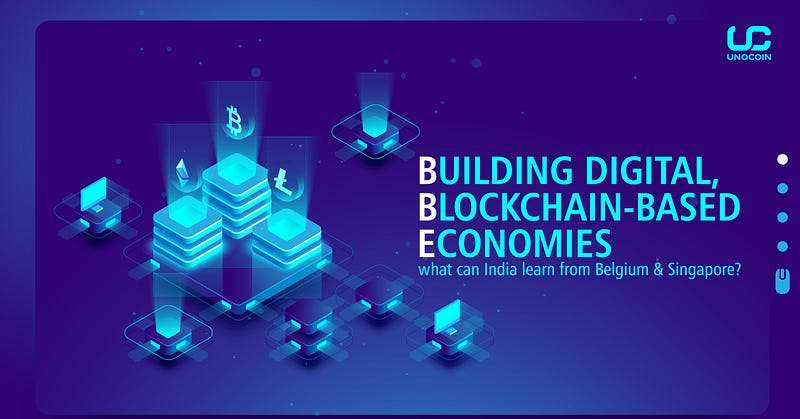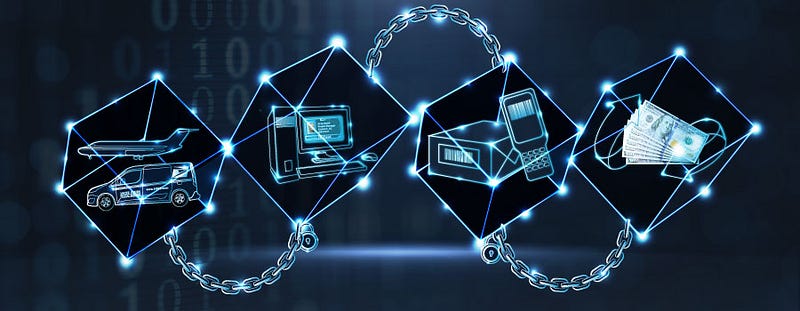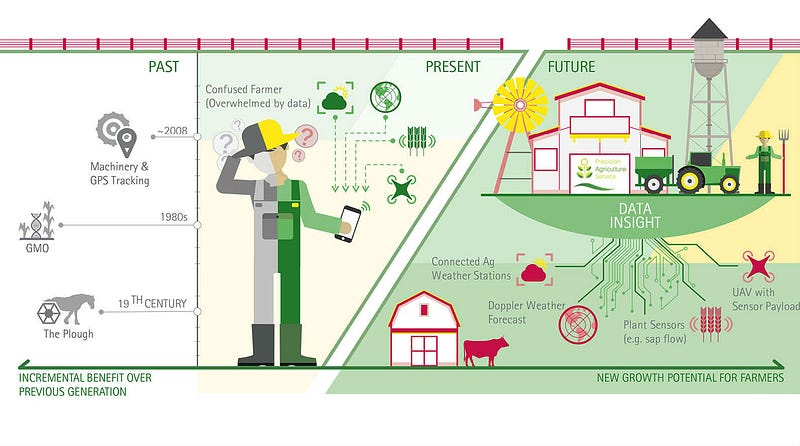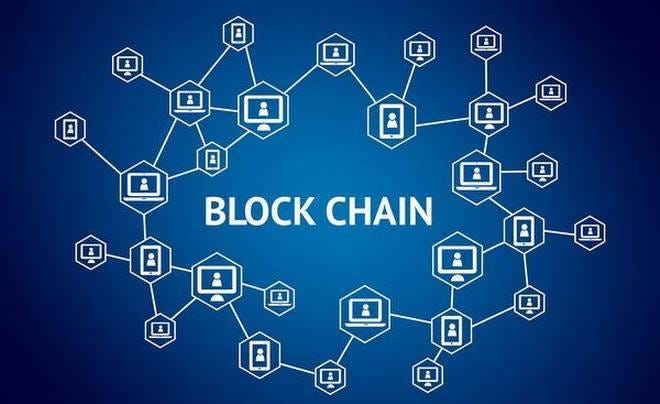
India started its journey to become a digital economy about half a decade ago. As of today, the mission is to make India’s digital sector worth $1 trillion in the next five years. Big Data Analytics, Artificial Intelligence, blockchain, Internet of Things and Robotics are not only creating jobs in multiple industrial sectors, but are also making room for development and advancement. With Blockchain tech layering up on the niche technologies, all societies are opening up to the new concept and are incorporating it in every technological venture..
How blockchains could change the world

Despite the buzz around Blockchain, it is simply to understand — it can be interpreted as a decentralized database that runs on secure encryption systems. It is a distributed and open-source database. That’s why users can actually happening in the backend! The design of the technology is truly peer-to-peer, which takes away the need of a central authority or a powerful intermediary.
Moreover, state-of the art encryption algorithms used in blockchains turn them it into an immutable, unhackable decentralized database of digital assets. Through mass collaboration and clever code, Blockchain technology can disrupt the functioning of almost any industry or economic sector.
The music, art and creative sectors can use Blockchain to spread their content by putting it all up on decentralized Blockchain platforms for everyone to see and admire. People using it for financial purposes can use it to transfer and store money, trade on various economic platforms and also keep a record of all their transactions and savings.
Sectors like education and research already use it to make resources available to an audience that might not readily be available to them — thanks to only a few central organizations that govern the academia. The advertising and media industry sees a ray of hope in the use of Blockchain technology to get past hurdles like ad-blocking software and low engagement of users. Customer verification, cloud storage, supply chain, manufacturing, networking, smart environments using Internet of things and even healthcare are adopting Blockchain technology in different facets and forms. With Blockchain being adopted across various industrial verticals, it simply proves that all economies across the globe can adopt Blockchain at the heart of it.
Role of blockchain in India’s biggest economic goldmine: agriculture

Agriculture too, is one of the major adopters of Blockchain technology. Food contamination, adulteration and frauds are on the rise as people question the quality of food they are receiving. India being a hugely agriculture-dominated economy is also facing the threat of poor food quality. Blockchains can ensure accountability, traceability and quality of the food, provided by high-end brands as well as local markets by increasing competition in the FMCG space. Food supply chains are deemed inefficient because of asymmetry in how information and resources flow. Since farmers, especially in the developing economies end up not receiving timely information on vital factors like food demand, weather forecasts and changes in the market trends, they end up losing a huge share of the benefit that they can actually churn out.
Blockchain technology brings in improved data sharing that helps reduce issues of food waste. Members of the supply chain can also access all the information throughout the chain thus making the entire supply chain system more democratic. This results in lesser food wastage and more profits going back to the rightful stakeholders — the farmers. Blockchain will also help farmers trace the authenticity and quality of products they buy for further generating quality produce themselves. Additionally, processes like plot registration and disbursement of subsidies can become more effective and convenient with the advent of Blockchain technology.
Learnings from across the globe
Looking at the case studies of Blockchain being used in various industries, it is pretty clear that building a digital blockchain-based economy is possible. However, leveraging learnings from across the globe can always help us in moving towards the aim of a digital nation seamlessly. Estonia, Russia, Japan, UAE and Denmark are some of the countries that are keeping the world on its toes with their moves of going digital and adopting Blockchain in their grassroot operations.

Estonia’s e-residents are issued a digital ID card designed on the basis of blockchain infrastructure in the backend. These cards employ advanced cryptographic encryption functions and allow the citizens to access various public and social services. They can verify the integrity of the records on a blockchain ledger platform storing government databases. A voting system based on blockchain technology validated by Nasdaq will now allow company shareholders to make important organisational decisions. Estonia is also adopting Blockchain in its healthcare sector and has successfully rolled out 1 million insured health records. Updating healthcare records on the blockchain prevents medical fraud and malpractices like hacking as it makes it impossible to hide any trail of manipulations.
Singapore on the other hand is adopting blockchain in one of the most profitable industries in the world, aviation. Singapore Airlines has designed a blockchain-based wallet to motivate its most frequent travelers to use their services further. While the company is developing its own distributed ledger technology in cooperation with Microsoft, customer satisfaction is at the top of Singapore Airlines’ priorities. Singapore had also launched ‘Project Ubin’ to integrate blockchain technology and tokenization in their monetary and banking services. Cross-border payments and security implementation in delivery of payment were two major focus areas of the initiative.
A non-profit Singapore based firm, VeChain leverages blockchain to solve the problem of lack of product authenticity in supply lines like pharmaceuticals, logistics, manufacturing production lines, transportation, luxury goods, wines and even agriculture. The core of the concept is in tracking items across the supply line and hence, reducing the risk of quality manipulation or product authenticity. The supply goods are given a unique Vechain ID (VID). It is a unique code that can be scanned to determine the product’s authenticity and allows all stakeholders in the supply line to track the products remotely. They are now in conversation with the Belgian Deputy Prime Minister, Alexander De Croo to discuss how the blockchain technology could be incorporated in Belgium’s digital initiatives.

All these success stories and more are a sign that the world is moving towards a digitized and blockchain-based model. India is one of the countries moving towards the digital model. With the technological concept incorporated through industries like banking, manufacturing, healthcare and agriculture, India definitely has a huge opportunity in creating a decentralized, secure and distributed economy.



